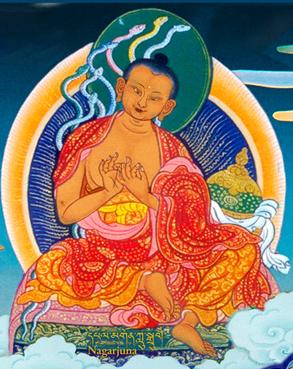
XII.1.
Sorrow (dukkha) is produced by oneself,
or by another,
or by both itself and another,
or from no cause at all;
But to consider that sorrow (dukkha) as what is produced is not possible.
XII.2.
Certainly those “groups of universal elements” (skandhas) exist presupposing these “groups.”
XII.3.
Sorrow (dukkha) would be produced by something other than itself, because those would be made by these others.
XII.4.
Who is that “own personality” by which sorrow (dukkha) is self-produced (i)?
XII.5.
How would he, to whom is given that sorrow (dukkha) by another after he had produced it, be without sorrow (dukkha)?
XII.6.
Who, while being without sorrow (dukkha), yet makes and transmits that sorrow (dukkha) to the other?
XII.7.
Certainly the sorrow (dukkha), which would be produced by another, in his case would be self-produced.
XII.8.
If the “other” (para) is not produced by the individual self (atma), how would sorrow (dukkha) be that produced by another?
XII.9.
But not produced by another, and not self-produced —how can sorrow (dukkha) exist without a caused.
XII.10.
but also none of the four causal interpretations is possible even in respect to external things (bhava).
Source: Orientalia




